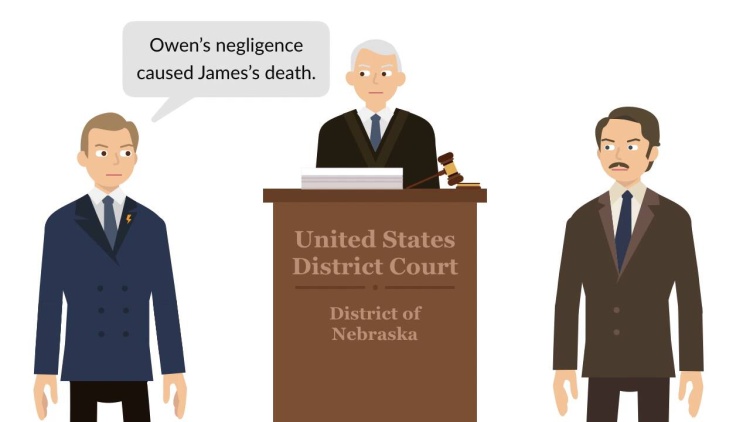Owen Equipment and Erection Co. v. Kroger
United States Supreme Court
437 U.S. 365, 98 S. Ct. 2369, 57 L. Ed. 2D 274 (1978)
- Written by DeAnna Swearingen, LLM
Facts
Following the death of her husband in an industrial accident, Kroger (plaintiff), an Iowa resident, sued the Omaha Public Power District (OPPD), a Nebraska corporation, in federal court, asserting diversity jurisdiction. OPPD filed a third-party complaint against Owen Equipment & Erection Co. (Owen) (defendant), alleging that Owen owned and operated the equipment involved in the industrial accident and that Owen’s negligence was the proximate cause of Mr. Kroger’s death. The court subsequently permitted Kroger to amend her complaint to include Owen as a codefendant. The district court then granted OPPD’s motion for summary judgment, leaving Kroger and Owen as the only parties in the matter. Kroger’s amended complaint alleged that Owen was a Nebraska corporation, and Owen’s answer admitted that it was a Nebraska corporation. However, during trial, it became clear that Owen’s principal place of business was in Iowa. Owen moved to dismiss the complaint for lack of jurisdiction, as both Owen and Kroger were Iowa citizens. The district court reserved judgment on the motion, and the jury returned a verdict in favor of Kroger. The district court subsequently denied Owen’s motion to dismiss. The court of appeals affirmed the judgment. The United States Supreme Court granted certioriari.
Rule of Law
Issue
Holding and Reasoning (Stewart, J.)
Dissent (White, J.)
What to do next…
Here's why 907,000 law students have relied on our case briefs:
- Written by law professors and practitioners, not other law students. 47,100 briefs, keyed to 996 casebooks. Top-notch customer support.
- The right amount of information, includes the facts, issues, rule of law, holding and reasoning, and any concurrences and dissents.
- Access in your classes, works on your mobile and tablet. Massive library of related video lessons and high quality multiple-choice questions.
- Easy to use, uniform format for every case brief. Written in plain English, not in legalese. Our briefs summarize and simplify; they don’t just repeat the court’s language.





